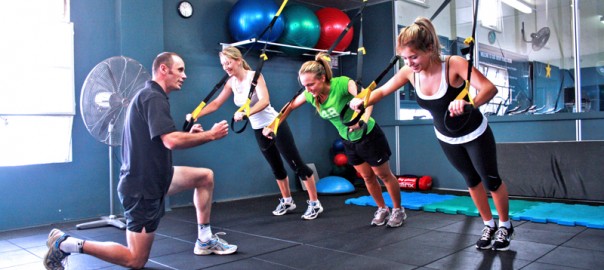
Image copyright
Have you ever caught yourself between your sit-ups looking up to your personal trainer and thinking to yourself what it is that they secretly wish you didn’t do but they are not telling you? Well, I treated my personal trainer to a healthy fruit snack after one of our sessions and started an honest conversation about the things she wishes her clients didn’t do.
Here is the top 4 list of things my personal trainer wishes I didn’t do:
1. Make excuses
Making excuses is actually just simple complaining.
An excuse is an invented reason you create in order to defend your behavior, to neglect taking action. You are placing blame on an external condition instead of addressing the internal problem.
When I say: “I didn’t stick to my diet meal plan on the weekend because my sister had a party” or “I’m too tired to do crunches because I stayed up late,” I am just complaining about the workout exercise. What you are actually saying by coming up with an excuse is that the issue at hand is not important enough for you to make an effort. The truth is, your trainer doesn’t care about the “because” part. The thing is, You failed to do it.
-

Why didn’t she tell me that I am an a**hole?
Image copyright
Making excuses is a defense mechanism in which controversial behaviors or feelings are justified and explained in a seemingly rational way to avoid the true explanation. Making excuses is damaging for yourself. It also demotivates you and people around you.
Don’t forget that you hired a personal trainer because you want to change and now you’re saying that you can’t. You are not paying the personal trainer to listen to your excuses, they are there to make you work out. Listening to you making excuses puts your trainer in a hard situation, because you are expecting results, yet it is frustrating that you’re making a minimal effort while getting lunch in a drive-thru!
You have to start taking responsibility for your actions. If you find yourself making excuses – just stop. Quit making excuses now! [Tweet this!]
2. Wear baggy exercise clothes

Image copyright
Wearing baggy clothes can be dangerous: long, baggy pants can catch on stationary bikes or elliptical machines. However, this is not the only reason why you need to start wearing slim-fitting pants and stretchy T-shirts. Your personal trainer needs to see your body to be able to ensure that you are doing every movement in the proper way. If you’re hiding your body under an oversize T-shirt, your trainer can’t adjust your pose: you can’t see anything under a baggy shirt. It may feel comforting to know that you are hiding your oversize body under it, but for your trainer it is crucial to get you to perform an exercise correctly. Fixing the posture is important because you are risking an injury.
Try it, close-fitting exercise clothing is actually more comfortable than the baggy ones! If you are uncomfortable wearing shorts, try slim-fitting long pants or capris. Plus, wearing tight clothes helps you notice the changes on your body more quickly. You can follow closely how those inches melt away from your hips from week to week, and it will help you accept the new fit body more easily!
3. Withhold personal health information
This should be a no-brainer, but your personal trainer needs to know about your medical history in order to prevent injuries. It’s critical that you inform your trainer and ask if they have experience working with them. Share every important medical information about yourself:
- previous surgeries – don’t forget to mention if you had surgeries involving your joints or muscles,
- medications that you are currently taking or stopped taking – because some medications affect heart rate or respiration rate so that is why they need to know what kind of medication you are taking
- mention any recent muscle aches, strains or pulls too
Exercise can help with symptoms of medical conditions, however, if your trainer is unaware of your problems, working out can make an existing issue worse. Don’t worry, a good trainer will be able to adjust the training technique to match your physical state.
4. Talk too much during exercise
Incessantly talking about your personal issues during training sessions sends your trainer a message that you are confused about what they can do about you. If you notice that your workout is paused by your chat or rant about your significant other, crazy friend or frustrating coworker, then it is an issue that both of you need to address. It may be hard for your trainer to interrupt these stories, especially if they are emotional ones. You may be unaware of this, but this may be frustrating for your personal trainer, because you are risking reaching your fitness goals and their reputation may be on the line. Most people want to see results overnight and if it doesn’t happen, they blame the trainer. You paid for results, however you are yet again finding excuses to slack. Limit your chit-chats to the warm-up and cool-down stretching period.
Want more? Click here to find out more about what Your journey will be after weight loss>>>
